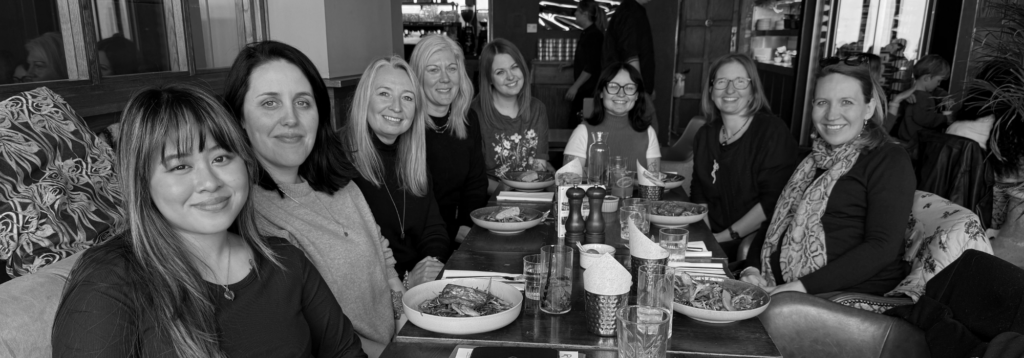Harvey John
Unit 2 Ferry Wharf
Hove Enterprise Centre
Basin Road North
Portslade, East Sussex
BN41 1BD
First of all, congratulations on securing an interview! Secondly, we’d like to reassure you with some more in-depth interview advice…
- You can prepare to give yourself the best chance at getting your dream role. All it requires is a bit of time and effort. Think of it as a game and all you need to do is just learn the rules. Although it may be more like chess than checkers. (meaning: practice is the key!)
- You’re already in the pool of great candidates and the hiring manager thinks you can do the job. Trust us, no employer would waste their time and money to interview someone whose application raised any concerns. They want you to perform well. Your only task is to elaborate on what you put on your CV.
- If you don’t succeed at this interview, it is a valuable experience that will help you with the next one! Again, just like a game – you may not win the first round but with every re-match, you improve, until finally, you become a master.
But how to make sure that you will indeed win this round?
Preparation is the key. In an ideal world, you will have plenty of time to get your ducks in a row. However, if your interview is today…
- Take a few deep breaths and drink some water
- Make sure you look confident and check the names of your interviewers
- Make sure you know the name of the company and the position you applied for
- Re-read your application and job description and identify what it is that makes you a great candidate
- Skim through your CV and think about what they could ask you based on your CV
- Plan what you’re going to say for the potential “Tell us a bit about yourself” question
- Be ready to answer the “Why should we hire you” question
Last, but not least…
The biggest sin of all is the lack of knowledge about the company and the department that you’re applying. Even if you aced the interview, showing that you know nothing about the organisation will leave the interviewers with the impression that you’re not interested in this position and they will question your motivation to join their team.
So make sure you’ve researched the company and the department, also you need to prepare a few questions that you will have for them.
Usually, at the end of the interview, you will get a chance to ask questions to the interviewers. There is nothing more deflating than saying that you don’t have any questions at all. It will ruin the whole impression you were working so hard to build. To avoid that, write down at least 4 varied questions that you will ask to emphasise your true interest in this role.
Some potential questions so you get the gist:
The Role.
Can you tell me more about the day-to-day responsibilities of this job?
What type of background would be best suited for success in this position?
Do you have a policy for helping new members of the team get on board?
The Progression.
What is the typical career path for someone in this position?
Training opportunities?
What are the prospects for professional growth and advancement?
The Company.
Where do you think the company is headed in the next 3 years?
What are the biggest opportunities facing the company/ department right now?
The Process itself.
When can I expect to hear from you?
What are the next steps in the interview process?
You can choose some from the above or come up with some of your own, either way, aim for at least four and write them down.
Finally – you’re in!
As first impressions matter, make sure that you won’t put off interviewers with some basic mistakes.
A few remarks at the beginning of the interview:
- Smile
- Wait until you’re invited to sit down
- Sit comfortably but not hunched over
- Maintain good eye contact with all interviewers – if this is difficult for you try to find a spot on them (near their eyes) to focus on to still give the illusion
- If you’re being offered some water, take it. Even if you’re not thirsty – you can use it strategically to give yourself an extra few seconds to come up with the answer to the question (if your mind goes blank!)
During the interview:
- Speak slowly and clearly
- If you feel you’re speaking too fast – take a breath
- Give yourself some time to come up with replies, don’t rush into answering questions straight away
Most interviewers will ask you some competency-based questions. They usually start with “Tell me about a situation when…” or “Give us an example of…”
A perfect way to nail these questions is to use the S.T.A.R. technique.
- Outline the Situation
- Describe Your Task
- Give more details on what you did (Action), your input and your role
- Finish up with the Result (whether you finalised the task or not)
You can expect some follow-up questions regarding your reflections on the whole situation, e.g. if you could turn back time, would you approach this situation in a different way etc.
Last few words…
Remember that your interviewers are just people. They have families, they have everyday struggles like the rest of us and they are probably (hopefully!) really nice. What’s even more important, they also had to take multiple interviews in their career and know exactly what it’s like to be on the other side so they can understand if you’re stressed or make some mistakes. They want you to do well, they chose to meet you for a reason!
Last but not least, as soon as you leave the room, reflect on your performance. Again, think of it as a game that you need to practice. So sit down and write down all the questions you feel you didn’t deal with that well and make a note to your future self about what you need to work on before the next round.
Best of luck from Team Harvey John!
If you would like to see our company updates and industry insights, follow our LinkedIn page here.
Author

As a vital link between the Board, Operations, and Finance, Katie tracks the effectiveness of our marketing initiatives to keep us in tune with what’s working. Through strategic research and innovative content marketing, she empowers Harvey John to stay ahead in the agile recruitment landscape, offering our network valuable insights.







